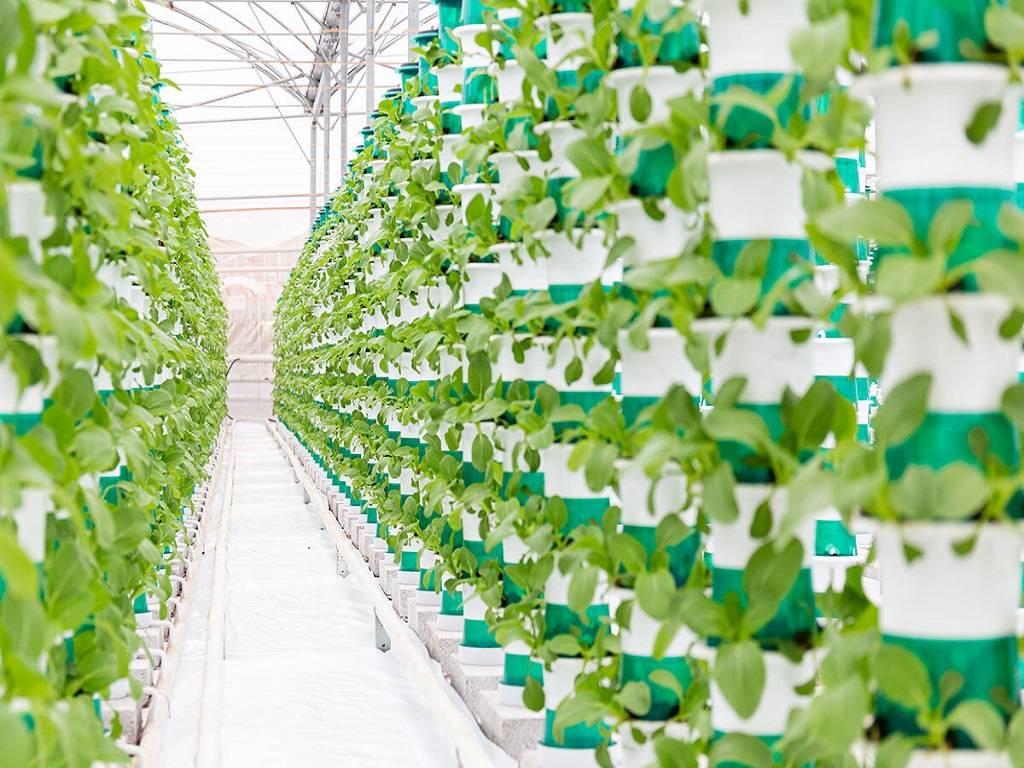
According to the United Nations, by 2050, we will need to produce 60% more food to fulfill the demands of an expanding population. Climate change is putting pressure on food production, but increased CO2 levels in the atmosphere may also be lowering crop nutritional value.
Likewise, the majority of the good farmland is already in use.
Vertical farming companies intend to tackle these issues by growing food indoors, in vertical towers of stacked trays, utilizing artificial lighting and closed water systems. This design allows them to grow not just more crops on the same amount of land, but also better, more sustainable crops.
Vertical farming enterprises can manage the lighting, humidity, and temperature inside their facilities, ensuring that their plants have all they need to grow all of the time. Farmers may harvest crops as soon as they're ready, and they can start growing new plants at any time of year.
The disadvantage, as you can expect, is the cost. Growing vast amounts of plants on open fields in the sun is still far cheaper than paying for the structures, lighting, water systems, and heating and air conditioning required to grow them indoors.
Here are five vertical farming businesses to keep an eye on as the industry develops, plus an extra eight that are now selling food.
AeroFarms
AeroFarms was founded in 2004 and is one of the most well-known vertical farming companies.
Two commercial farms have already opened, with a third slated to begin in the second quarter of 2022. According to CEO David Rosenberg, the new facility will be "the world's large and highly advanced aeroponic indoor vertical farm."
In Abu Dhabi, the UAE, AeroFarms is also constructing the world's largest vertical farm for R&D activities. Hundreds of engineers, horticulturists, and scientists will work at the facility, which is set to open in early 2022, to find methods to enhance vertical farming using AI, robots, and other technology.
FarmPod
FarmPod, unlike other vertical farming enterprises, does not sell food; instead, it offers vertical farms.
The St. Croix-based company sells a food-growing system that allows anyone to grow more than 100 pounds of fresh fruit every week in a space the size of two parking spaces. It comes in a 20-foot shipping container that also serves as the base for the vertical farm
FarmPod's system combines vertical farming and aquaponics, which is the practice of producing live fish, shrimp, and other aquatic animals alongside plants. The waste produced by the fish can subsequently be utilized to fertilize plants. You may even consume the seafood as an additional perk.
Fifth Season
While most vertical farming startups rely largely on technology, Pittsburgh company Fifth Season goes well beyond.
The company, which employs "the nerdiest farmers you'll ever meet," has used advanced robotics technology and artificial intelligence to automate the whole growing and harvesting process.
Fifth Season can produce the same amount of greens as a typical farm while utilizing 97% less land, 95% less water, and less than half the time – all without employing a single worker in the grow room.
The second vertical farming facility of the company, which will be three times larger than the first, is now under construction near Columbus, Ohio, and is scheduled to open in 2023.
GreenForges
GreenForges is designing a system that employs all of the same technology — hydroponics, lighting control, and so on — but in vertical tunnels underneath, rather than erecting a vertical farm from the ground up.
This protects crops from temperature and weather fluctuations, lowering heating and cooling expenditures. It also permits farms to be built below hotels, flats, and other structures (as long as they are above the water table).
The machinery and trays of crops are lowered down by a motorized pulley system after the 50-inch-wide holes are drilled. The trays are then dragged to the surface for harvest and upkeep.
Shockingly Fresh
Shockingly Fresh, a Scottish startup is mixing the natural light of a greenhouse with vertically stacked plants and water-saving technologies to create a hybrid approach to vertical farming.
This implies that plants are light-dependent and do not grow at the same rate all year — unlike in a traditional vertical farm — but it still enables for more crops to be produced per acre of land and uses significantly less energy than other vertical farms.
The company built and sold its first commercial site in 2021. Offenham Vertical Farm, at three acres, is currently the UK's largest naturally lit vertical farm, producing four times the typical output of leafy greens for the same amount of land.
Other Vertical Farming Companies To Watch On
The vertical farming companies mentioned above represent only a small part of the growth of the Industry:
-
AgriCool
-
One
-
BrightFarms
-
FreshBox Farms
-
Bowery
-
Upward Farm
-
Nordic Harvest
-
InFarm
-
AS Agri & Aqua LLP










